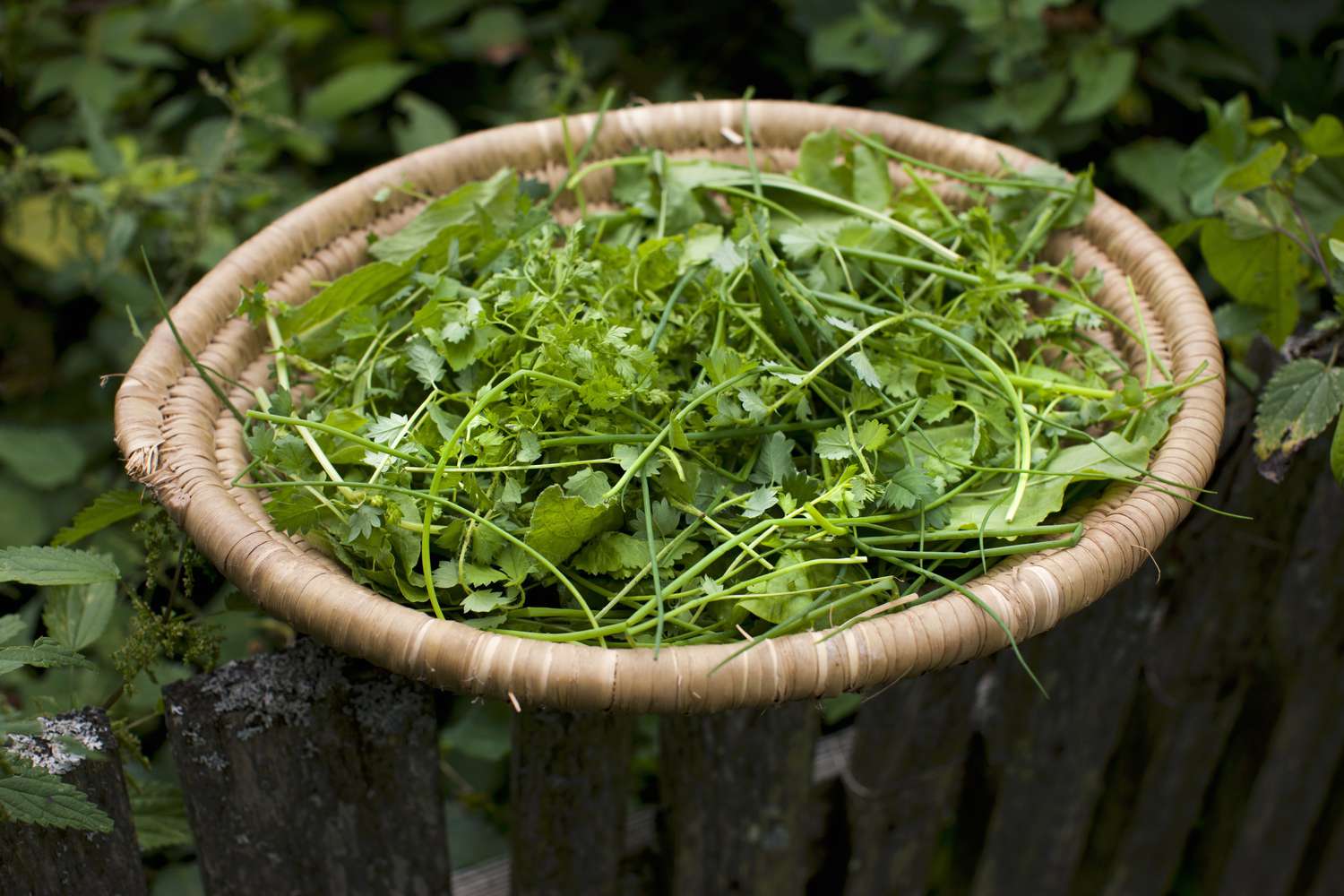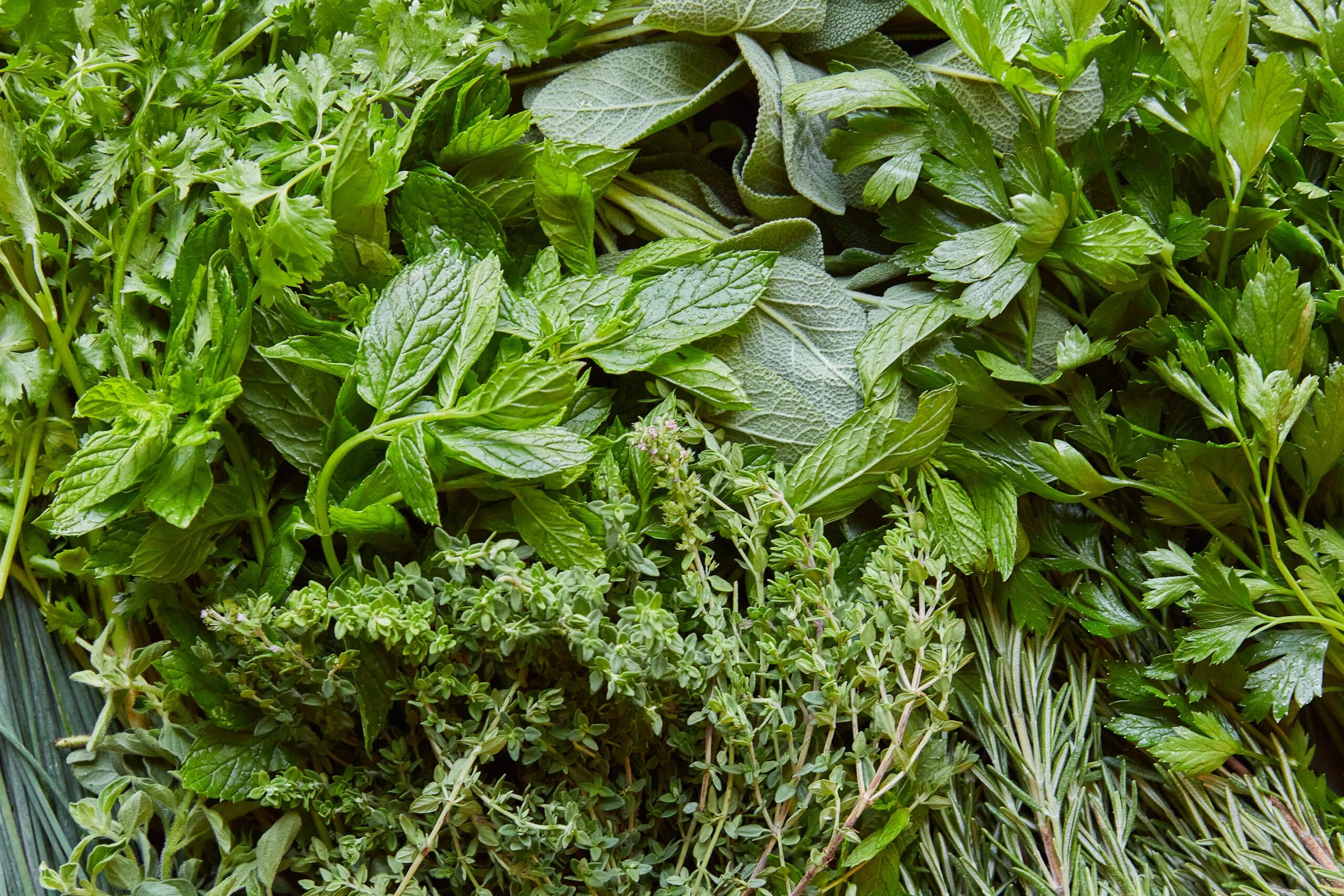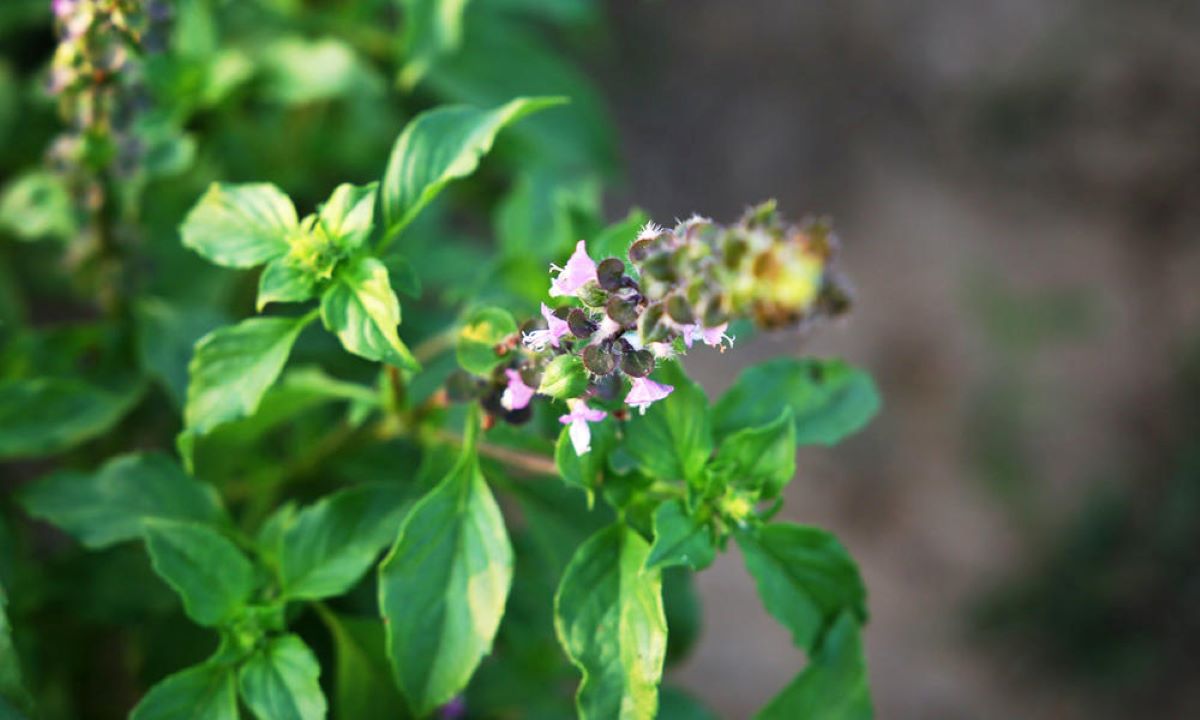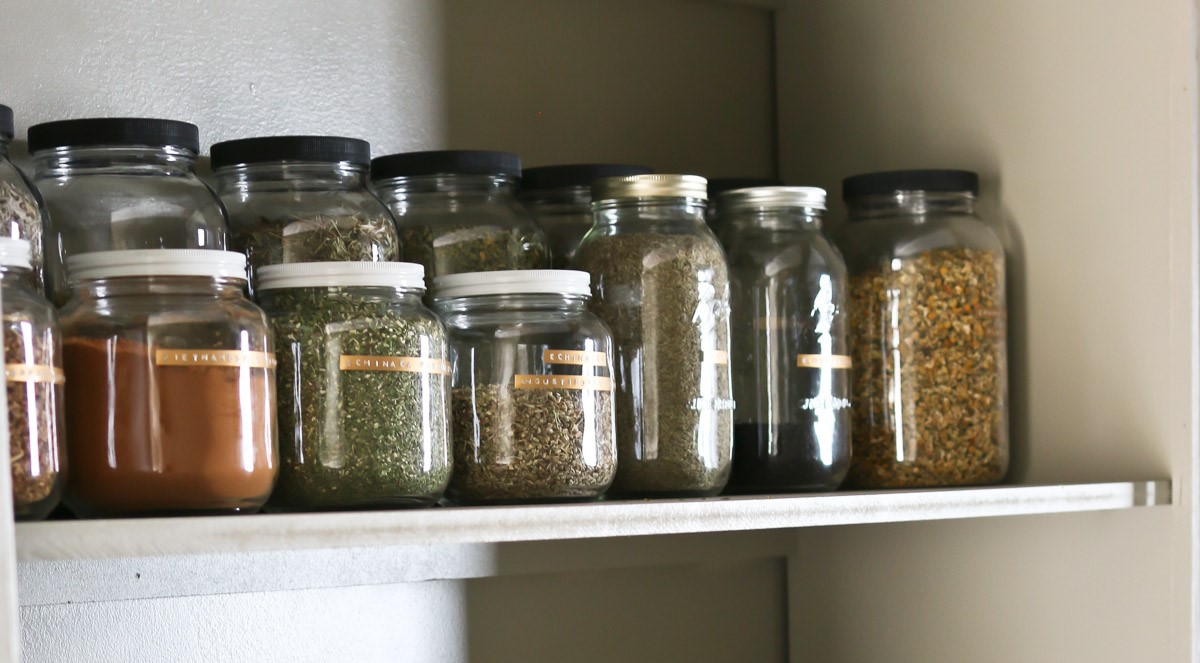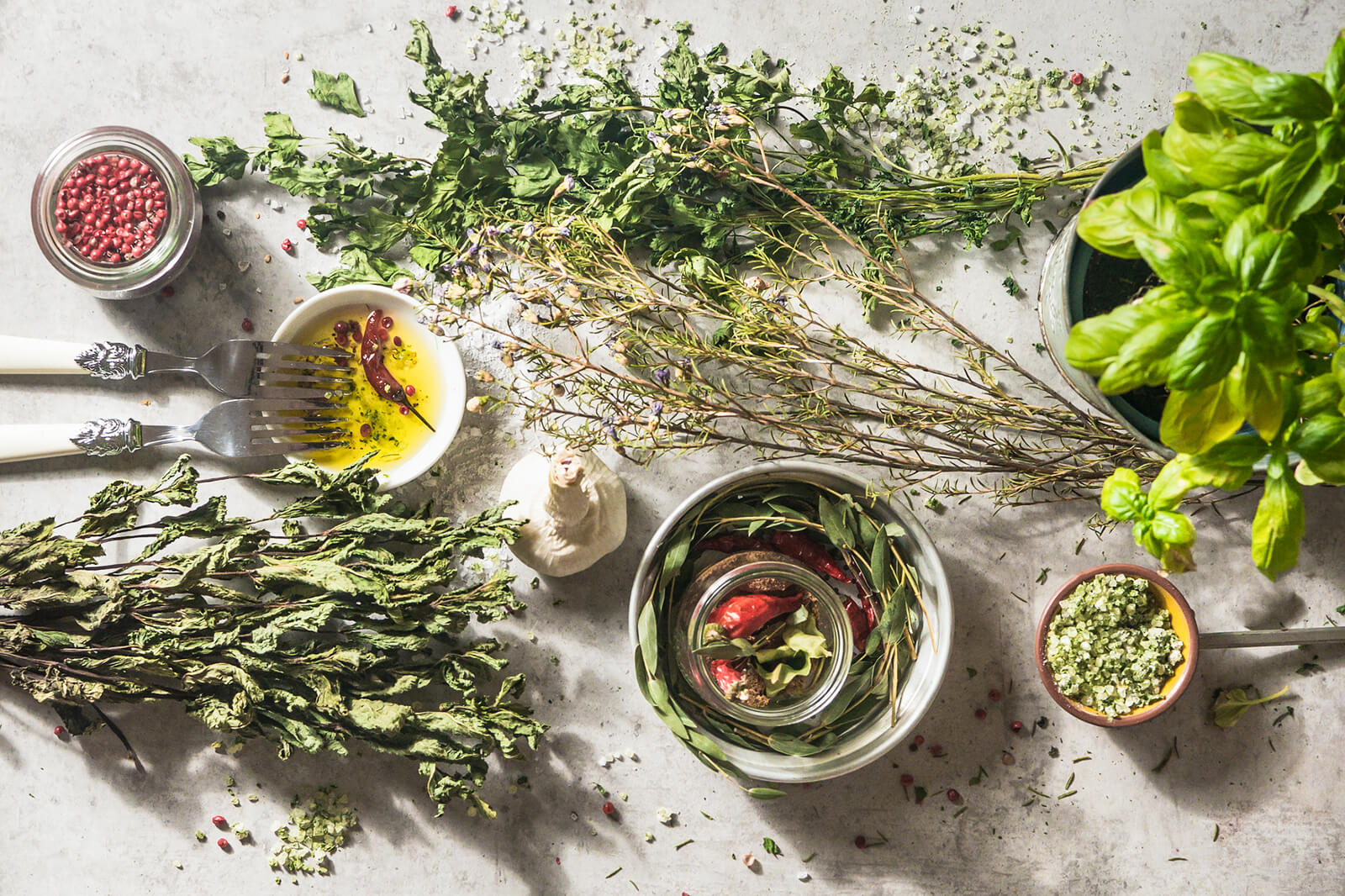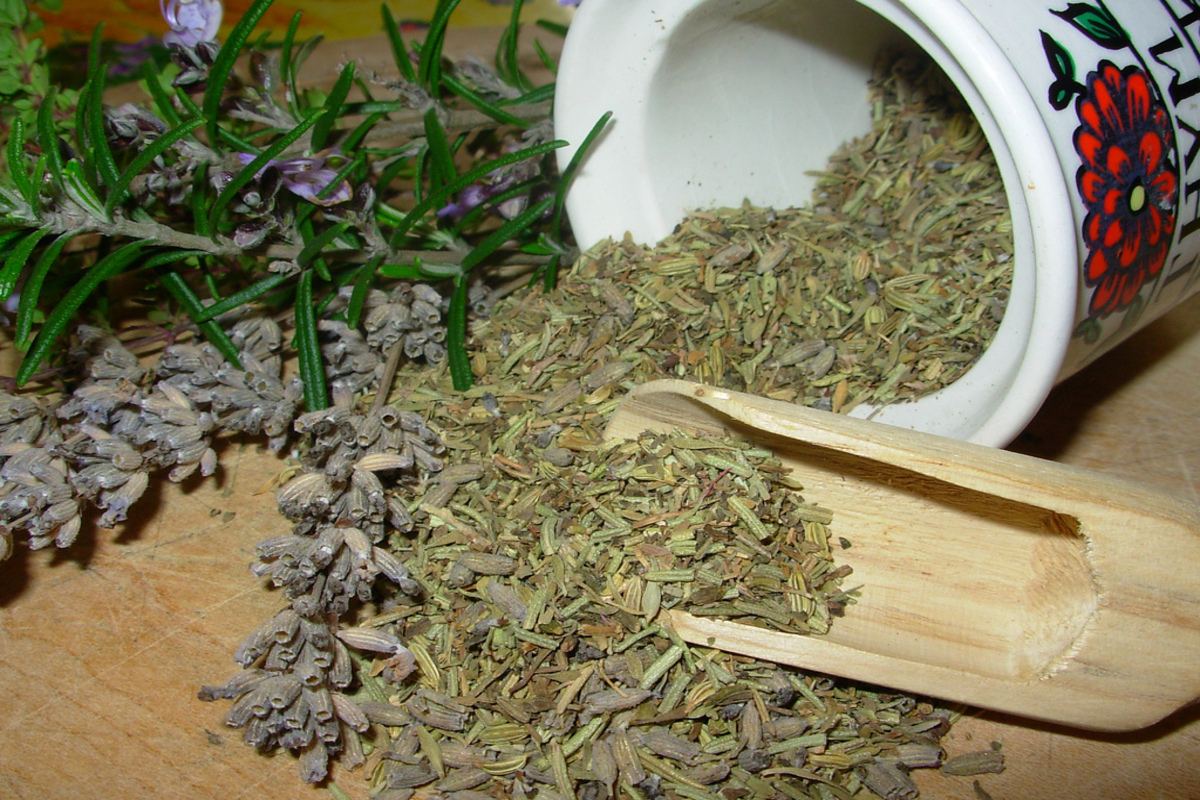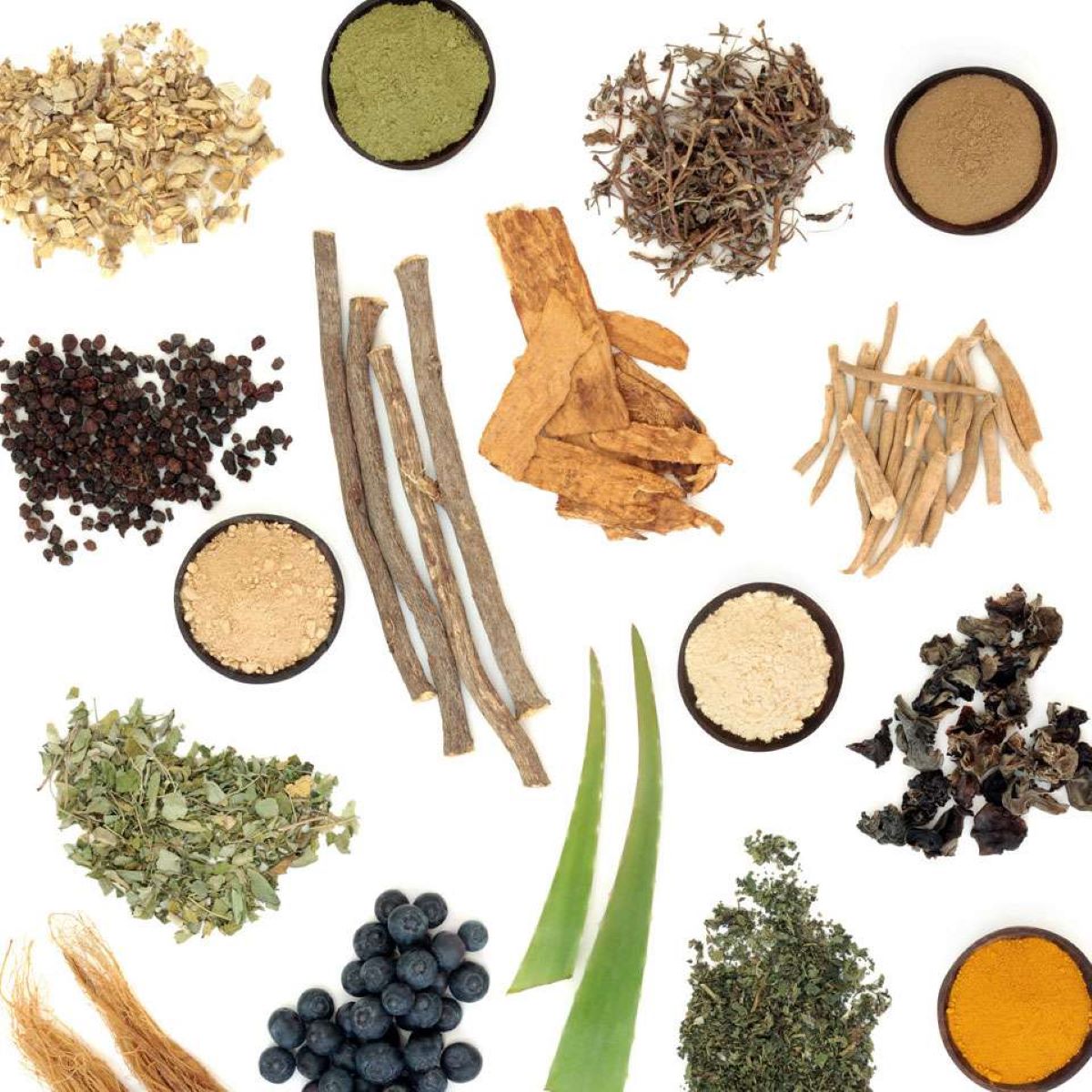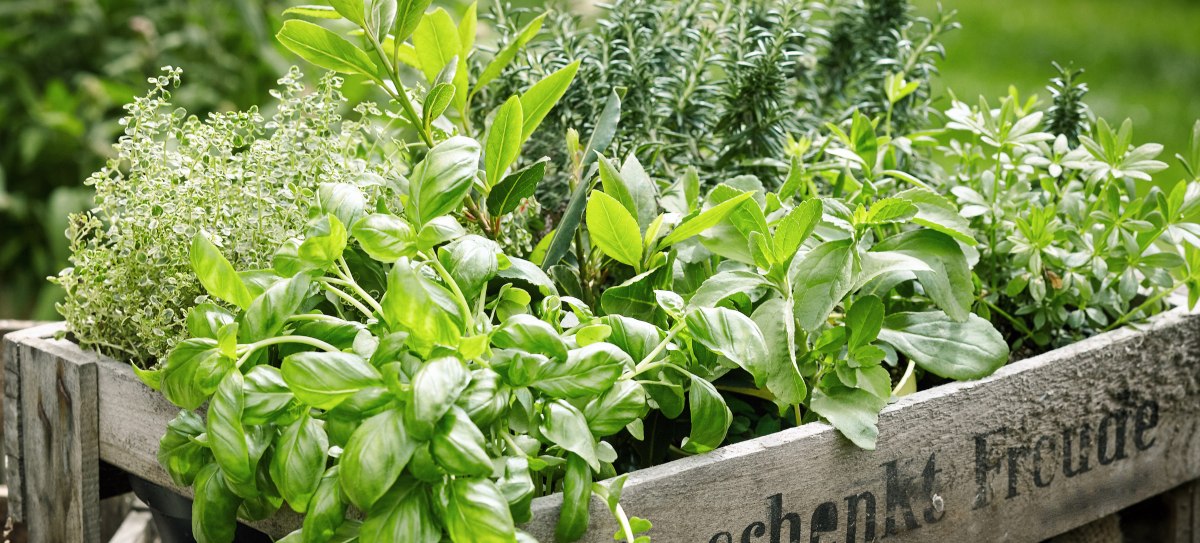Home>Gardening News and Trends>Latest News>What Herbs To Avoid While Pregnant


Latest News
What Herbs To Avoid While Pregnant
Published: October 3, 2023
Looking for the latest news on what herbs to avoid while pregnant? Discover important information and precautions to ensure a safe and healthy pregnancy.
(Many of the links in this article redirect to a specific reviewed product. Your purchase of these products through affiliate links helps to generate commission for Chicagolandgardening.com, at no extra cost. Learn more)
Table of Contents
Introduction
Pregnancy is a beautiful and transformative journey in a woman’s life. During this time, it is crucial to prioritize the health and safety of both the mother and the growing baby. While many women opt for natural remedies to address common discomforts during pregnancy, it is essential to be aware of the potential risks associated with certain herbs.
Herbs have been used for centuries for their medicinal properties and health benefits. However, not all herbs are safe to consume during pregnancy. Some herbs can cause uterine contractions, hormonal imbalances, or other adverse effects that may pose a threat to the well-being of the fetus.
Understanding which herbs to avoid during pregnancy is of utmost importance to ensure a healthy and complication-free journey. In this article, we will explore some herbs that pregnant women should steer clear of and why they can be potentially harmful. Please note that it is always advised to consult with a healthcare professional or a qualified herbalist before incorporating any herbal remedies into your pregnancy routine.
Understanding the Importance of Herbal Safety during Pregnancy
During pregnancy, the developing baby is vulnerable to external influences, including the substances consumed by the mother. While some herbs are generally safe for consumption, certain herbs have properties that can potentially harm the fetus or interfere with the delicate balance of hormones.
The safety of herbs during pregnancy depends on various factors, including the specific herb, its form (such as tea, tincture, or supplement), the dosage, and the stage of pregnancy. It is crucial to be cautious and well-informed about the potential risks associated with herbal remedies.
One major concern is that some herbs can stimulate uterine contractions, leading to premature labor or even miscarriage. These herbs are known as emmenagogues and include herbs like pennyroyal, dong quai, and black cohosh. They have traditionally been used to induce menstruation and should be strictly avoided during pregnancy due to their potential to cause uterine irritability.
Additionally, some herbs can have an impact on hormone levels, which can interfere with the development and stability of the placenta. Herbs like blue cohosh, mugwort, and tansy have been reported to have estrogenic or progesterone-like effects, which can disrupt hormonal balance and increase the risk of complications.
It is also important to consider the potential for herbs to interact with medications that may be prescribed during pregnancy. Some herbs, such as feverfew, yarrow, and wormwood, may interact with blood thinners or cause excessive bleeding, which can be harmful during pregnancy or labor.
Another herb to avoid during pregnancy is comfrey. Although comfrey is often used topically for its soothing properties, it contains alkaloids that can be toxic when ingested and may harm the liver or the developing fetus.
Overall, the safety of herbs during pregnancy is a complex and individualized consideration. It is crucial to consult with a healthcare professional or a qualified herbalist who can provide tailored guidance based on your specific situation and medical history.
Herbs to Avoid During Pregnancy
While there are many herbs that are considered safe for consumption during pregnancy, it is important to be aware of certain herbs that should be avoided due to their potential risks. Here are some herbs that pregnant women should steer clear of:
-
Pennyroyal
Pennyroyal is a herb that has historically been used to promote menstruation and induce abortion. However, it is highly toxic and can cause severe complications, including liver damage and miscarriage. It should be strictly avoided during pregnancy.
-
Dong Quai
Dong Quai is often used to regulate menstrual cycles and treat menstrual disorders. However, it can stimulate the uterus and may lead to contractions, potentially increasing the risk of preterm labor or miscarriage. It should be avoided during pregnancy.
-
Black Cohosh
Black Cohosh is commonly used to alleviate menopausal symptoms. However, it has been associated with uterine stimulation and may increase the risk of miscarriage. It is recommended to avoid black cohosh during pregnancy.
-
Blue Cohosh
Blue Cohosh has been traditionally used to induce labor. However, it can stimulate uterine contractions and may lead to preterm labor. It is best to avoid blue cohosh during pregnancy.
-
Mugwort
Mugwort is a herb commonly used in traditional medicine. It has been reported to have potential effects on hormone levels and can cause uterine contractions. It is recommended to avoid mugwort during pregnancy.
-
Tansy
Tansy has been used traditionally to treat digestive disorders. However, it contains volatile oils that can be toxic and may cause contractions or even miscarriage. It should be avoided during pregnancy.
-
Feverfew
Feverfew is often used to alleviate migraines and inflammation. However, it can interfere with blood clotting and increase the risk of bleeding complications during pregnancy. It is best to avoid feverfew during pregnancy.
-
Yarrow
Yarrow is a herb known for its wound-healing and anti-inflammatory properties. However, it can stimulate uterine contractions and increase the risk of bleeding. It is advised to avoid yarrow during pregnancy.
-
Wormwood
Wormwood is commonly used in herbal remedies for its digestive benefits. However, it contains thujone, which can be toxic and may cause uterine contractions. It is best to avoid wormwood during pregnancy.
-
Comfrey
Comfrey has been used topically to relieve pain and inflammation. However, it contains pyrrolizidine alkaloids that can be harmful when ingested and may cause liver damage or birth defects. It should be avoided during pregnancy.
Remember, this is not an exhaustive list, and it is always recommended to consult with a healthcare professional or a qualified herbalist before using any herbal remedy during pregnancy.
Pennyroyal
Pennyroyal (Mentha pulegium) is a herb commonly used for its medicinal properties, such as aiding digestion and relieving respiratory issues. However, it is important to note that pennyroyal is highly toxic and should be strictly avoided during pregnancy.
Traditionally, pennyroyal has been used to promote menstruation and induce abortion. This is due to its potential to stimulate uterine contractions. However, these contractions can be extremely dangerous during pregnancy and may lead to complications such as miscarriage or preterm labor.
One of the main constituents of pennyroyal, pulegone, has been found to be toxic to the liver and can cause liver damage when consumed in large amounts. Due to these potential risks, it is strongly advised to avoid pennyroyal in any form, including herbal teas, supplements, or essential oils, during pregnancy.
If you suspect that you have ingested or come into contact with pennyroyal during pregnancy, it is crucial to seek immediate medical attention. Symptoms of pennyroyal poisoning may include nausea, vomiting, dizziness, abdominal pain, and even seizures.
While pennyroyal is a potent herb with potential medicinal benefits, it poses significant risks during pregnancy. It is always better to err on the side of caution and avoid using pennyroyal entirely. Instead, consult with a healthcare professional or herbalist for safe and effective alternatives to address your health concerns during this crucial period.
Dong Quai
Dong Quai (Angelica sinensis) is a herb commonly used in traditional Chinese medicine for its various health benefits. It is known for its potential to regulate menstrual cycles, alleviate menstrual pain, and provide hormonal balance. However, it is important to exercise caution and avoid using dong quai during pregnancy.
Dong Quai has a long history of being used to stimulate the uterus and promote menstruation. While this property can be beneficial in certain situations, it can also be harmful during pregnancy. The stimulation of the uterus can lead to contractions and potentially increase the risk of preterm labor or miscarriage.
Furthermore, dong quai contains compounds that can have an effect on hormonal levels in the body. During pregnancy, hormonal balance is crucial for the development and stability of the fetus. Any disruptions to this balance can potentially cause complications.
It is important to note that the safety of dong quai has not been well-researched in pregnant women. Therefore, it is advised to err on the side of caution and avoid using dong quai during pregnancy. If you are considering using dong quai for any reason, it is best to consult with a healthcare professional or a qualified herbalist who can provide guidance tailored to your specific situation.
While dong quai has a rich history and potential therapeutic benefits, its effects on pregnancy are not well understood. It is always better to prioritize the health and well-being of both the mother and the baby by avoiding the use of dong quai during pregnancy and seeking safer alternatives.
Black Cohosh
Black cohosh (Actaea racemosa) is an herb native to North America that is commonly used to address menopausal symptoms such as hot flashes, mood swings, and sleep disturbances. However, it is important to exercise caution and avoid using black cohosh during pregnancy.
Black cohosh has been traditionally used to stimulate uterine contractions and induce labor. While this property can be helpful for women who are nearing their due date, it can be risky during pregnancy. The stimulation of the uterus can potentially lead to preterm labor or miscarriage.
Additionally, black cohosh has been found to have estrogenic effects, meaning it can mimic the activity of estrogen in the body. During pregnancy, hormonal balance is crucial for the healthy development of the fetus. Any disruption to this balance can have adverse effects.
Research on the safety of black cohosh during pregnancy is limited, and conflicting findings have been reported. Some studies suggest that black cohosh may increase the risk of adverse pregnancy outcomes, while others do not show significant associations.
Given the limited research and potential risks involved, it is best to err on the side of caution and avoid using black cohosh during pregnancy. If you are experiencing menopausal symptoms or any other health concerns, it is advisable to consult with a healthcare professional who can provide alternative treatment options that are safe for use during pregnancy.
Prioritizing the health and well-being of both the mother and the baby is of utmost importance, and avoiding the use of black cohosh during pregnancy is a prudent choice.
Blue Cohosh
Blue cohosh (Caulophyllum thalictroides) is an herb that has been traditionally used to stimulate labor and promote childbirth. However, it is important to be aware of the potential risks associated with using blue cohosh during pregnancy and to avoid its use.
Blue cohosh contains compounds that have the potential to stimulate uterine contractions. While this property can be helpful when a woman is nearing her due date, it can be hazardous during pregnancy. The stimulation of the uterus can increase the risk of preterm labor or miscarriage.
Furthermore, blue cohosh has been associated with potential cardiovascular and fetal heart rhythm abnormalities. This can be particularly concerning as it may compromise the health and well-being of the developing baby.
It is essential to highlight that the safety and efficacy of blue cohosh during pregnancy have not been well-established through scientific research. Given the potential risks involved, it is recommended to avoid the use of blue cohosh during pregnancy.
If you are in need of assistance with inducing labor or have concerns about childbirth, it is crucial to consult with a healthcare professional who can provide appropriate guidance and offer safe alternatives.
Remember, the health and safety of both the mother and the baby should always be prioritized, and avoiding the use of blue cohosh during pregnancy is a responsible choice.
Mugwort
Mugwort (Artemisia vulgaris) is an herb commonly used in traditional medicine for various purposes, including digestive issues and menstrual irregularities. However, it is important to exercise caution and avoid using mugwort during pregnancy.
Mugwort has been reported to have potential effects on hormone levels in the body. It contains compounds that can act as estrogen and progesterone-like substances. While these properties may be beneficial in certain situations, they can also disrupt the delicate hormonal balance required for a healthy pregnancy.
Furthermore, mugwort has been traditionally used to stimulate uterine contractions and encourage menstruation. This property can increase the risk of premature labor or miscarriage when used during pregnancy.
Due to the limited research on the safety of mugwort during pregnancy, it is advisable to avoid its use. If you have concerns about menstrual irregularities or any other health issues during pregnancy, it is best to consult with a healthcare professional who can provide appropriate guidance and recommend safe alternatives.
As with any herbal remedy, it is important to prioritize the health and well-being of both the mother and the baby. Avoiding the use of mugwort during pregnancy is a wise choice to minimize potential risks and ensure a healthy pregnancy.
Tansy
Tansy (Tanacetum vulgare) is an herb that has been used traditionally for its medicinal properties, including treating digestive disorders, fever, and menstrual issues. However, it is important to exercise caution and avoid using tansy during pregnancy.
Tansy contains volatile oils, including thujone, that can be toxic when consumed in large amounts. Thujone is known to have stimulant effects on the uterus, which can potentially lead to contractions and pose a risk of miscarriage or preterm labor.
In addition to its potential to stimulate uterine contractions, tansy has been reported to have potential toxic effects on the liver. This can be particularly concerning during pregnancy when the liver plays a vital role in filtering toxins and supporting the overall health of the mother and the baby.
Due to these potential risks, it is strongly advised to avoid using tansy in any form, including teas, supplements, or essential oils, during pregnancy.
If you encounter tansy or suspect its consumption during pregnancy, it is important to seek immediate medical attention. Symptoms of tansy toxicity may include nausea, vomiting, dizziness, abdominal pain, and even seizures.
While tansy has been used in traditional medicine for centuries, its potential risks during pregnancy outweigh any potential benefits. To ensure a safe and healthy pregnancy, it is best to avoid using tansy and consult with a healthcare professional for alternative solutions to address specific health concerns.
Feverfew
Feverfew (Tanacetum parthenium) is an herb commonly used for its potential benefits in alleviating migraines, reducing inflammation, and managing fevers. However, it is important to exercise caution and avoid using feverfew during pregnancy.
Feverfew contains compounds that can interfere with blood clotting. While this property may be helpful for individuals with certain health conditions, it can pose a risk during pregnancy. Increased bleeding can be concerning for both the mother and the developing baby.
Furthermore, feverfew has been reported to have potential effects on hormonal regulation in the body. During pregnancy, hormonal balance is crucial for the proper development of the fetus. Disruptions to this balance can lead to complications.
Research on the safety of using feverfew during pregnancy is limited. Therefore, it is best to err on the side of caution and avoid its use during this crucial period.
If you are experiencing migraines or any other health concerns during pregnancy, it is important to speak with a healthcare professional. They can provide guidance and recommend safe alternatives to mitigate symptoms without potential risks.
Prioritizing the health and well-being of both the mother and the baby is paramount. Avoiding the use of feverfew during pregnancy is a responsible choice to ensure a safe and healthy pregnancy.
+
Yarrow
Yarrow (Achillea millefolium) is an herb known for its potential medicinal properties, such as reducing inflammation, alleviating digestive issues, and promoting wound healing. However, it is important to exercise caution and avoid using yarrow during pregnancy.
Yarrow has been traditionally used to stimulate uterine contractions and promote menstruation. While this property can be beneficial for certain conditions, it can be potentially harmful during pregnancy. The stimulation of the uterus can increase the risk of premature labor or miscarriage.
In addition to its potential to stimulate uterine activity, yarrow has been reported to have potential effects on blood clotting. It may interfere with the body’s ability to form blood clots properly, which can be concerning during pregnancy and increase the risk of bleeding complications.
Given the limited research on the safety of yarrow during pregnancy, it is advisable to avoid its use. If you are experiencing digestive issues, inflammation, or any other health concerns during pregnancy, it is best to consult with a healthcare professional for safe alternatives.
Prioritizing the health and well-being of both the mother and the baby is of utmost importance. Avoiding the use of yarrow during pregnancy is a responsible decision to minimize potential risks and ensure a safe pregnancy.
Wormwood
Wormwood (Artemisia absinthium) is an herb that has been used for its potential medicinal properties, including digestive benefits and as a natural remedy for parasites. However, it is important to exercise caution and avoid using wormwood during pregnancy.
Wormwood contains a compound called thujone, which can be toxic when consumed in large amounts. Thujone has been found to have stimulant effects on the uterus, potentially leading to uterine contractions and increasing the risk of miscarriage or preterm labor.
Due to its potential to stimulate the uterus, wormwood should be avoided during pregnancy. It is also worth noting that wormwood can have interactions with certain medications and may interfere with the body’s ability to metabolize drugs properly.
Given the limited research on the safety of wormwood during pregnancy, it is best to err on the side of caution and avoid its use. If you are experiencing digestive issues or are concerned about parasites during pregnancy, it is important to consult with a healthcare professional for safe and effective treatment options.
Always prioritize the health and well-being of both the mother and the baby. Avoiding the use of wormwood during pregnancy is a wise decision to minimize potential risks and ensure a healthy pregnancy.
Comfrey
Comfrey (Symphytum officinale) is an herb that has been used for centuries for its potential medicinal properties, particularly for its soothing and healing effects on the skin. However, it is important to exercise caution and avoid using comfrey during pregnancy.
Comfrey contains pyrrolizidine alkaloids, which can be toxic when ingested. These alkaloids can have adverse effects on the liver and have been associated with liver damage. Additionally, they have the potential to cause birth defects or harm the developing fetus.
While comfrey is commonly used in topical preparations, such as creams and ointments, it is advised to avoid using it internally or orally during pregnancy. There is a risk that the toxic compounds may be absorbed into the bloodstream and reach the developing baby.
It is essential to note that the safety of using comfrey during pregnancy has not been well-established through scientific research. Therefore, it is strongly recommended to avoid using comfrey in any form during pregnancy, including both internal and topical use.
If you are seeking alternative remedies for skin issues or discomfort during pregnancy, it is important to consult with a healthcare professional. They can provide recommendations for safe and effective alternatives that will not pose any risks to you or your baby.
Ensuring the health and well-being of both the mother and the baby is paramount. Avoiding the use of comfrey during pregnancy is a responsible choice to prevent any potential harm and promote a healthy pregnancy.
Conclusion
Pregnancy is a time of immense joy and a period where the health and safety of both the mother and the baby are paramount. When it comes to using herbal remedies during pregnancy, it is important to exercise caution and be well-informed about potential risks.
While many herbs have been used for centuries for their medicinal properties, not all herbs are safe to consume during pregnancy. Some herbs, such as pennyroyal, dong quai, black cohosh, blue cohosh, mugwort, tansy, feverfew, yarrow, wormwood, and comfrey, should be strictly avoided due to their potential to stimulate uterine contractions, disrupt hormonal balance, or cause other adverse effects that may harm the developing baby.
It is crucial to consult with a healthcare professional or a qualified herbalist before incorporating any herbal remedies into your pregnancy routine. They can provide personalized guidance based on your specific situation and help you choose safe and effective alternatives to address any health concerns you may have.
Remember, the safety of herbs during pregnancy depends on various factors, including the specific herb, its form, the dosage, and the stage of pregnancy. It is always better to err on the side of caution and avoid using herbs that are known to have potential risks.
By prioritizing the health and well-being of both the mother and the baby and making informed choices, you can ensure a safe and healthy pregnancy journey.
